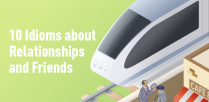Words wander constantly into English, but there are some that internet users would love to see wander right back out again.
Feel free to download our high-resolution poster here
“SELFIE”
Currently the most hated word on the internet, it is associated it with the word “selfish” and with duck-lipped teens and twenty-somethings adding hourly photos of themselves to social media. “Me at the mall.” “Me at Fred Meyers.” “Me in Mom’s van.” In addition, adding -ie to anything makes it sound stupid.
“LITERALLY”
Overuse has pushed some handy and helpful words into areas where they do not belong. When used correctly, “literally” means “in the strictest sense” and it should not swap out with “virtually.”
No!
“I literally laughed myself to death.”
You are talking and breathing so I am going to call you on that.
Yes!
“It was pouring; the dog came inside literally soaked to her skin.”
This is physically possible and therefore correct.
“AWESOME SAUCE”
This phrase topped the lists last year but is not dying quickly enough. To annoy those who use it while speaking, this author adds “with possum bits” to the conversation and has actually experienced some success.
Sample conversation:
22 year old: “That new movie was awesome sauce.”
42 year old: “With possum bits?”
22 year old: “Possum–what?”
42 year old: “Awesome sauce with possum bits?”
22 year old: “…”
“LOL, ROFL, LOLOL”
The first two are so overused that they have escaped the interwebz and now appear in spoken conversation. The third simply makes no sense. Generally, something is repeated to add impact, but since the original abbreviation means “Laughing Out Loud,” LOLOL is meaningless: “Laughing Out Loud Out Loud.” LOLOL was probably invented because LOL now has the impact of skim milk. More -OLs may indicate a drama queen/king.
Sample text message:
Yes!
Mom: “Bring some antacids, your dad is cooking.”
Me: “LOL”
No!
Mom: “Bring some antacids, your dad is cooking.”
Me: “LOLOLOL”
“AMAZING”
One blogger states that “amazing” is so overused that it nearly brings physical pain to her. This word should indicate an overwhelming wonder or great surprise, with the root pointing to confused and stunned astonishment (Old and Middle English, pre-1000). Because “stun” appears repeatedly in the definition, it seems to be a word drained of its strength by internet drama. “Amazing” is regularly found in incredibly underwhelming sentences.
“This cup of tea is amazing.”
Is your mouth hanging open as you stare into your cup? Are you paralyzed in astonishment?
No!
“The view of Mt. St. Helens was amazing.”
Volcanos can be amazing, especially when erupting.
Yes!
“-AGEDDON” or “-POCALYPSE”
These suffixes were cute the first 50 times. After Snowmageddon and Carpocalypse (and vice versa) were used ten times each, it got old quickly. The Alpacalypse image on social media managed to get a snicker but only because llamas and their fuzzy alpaca kinfolk are already funny. Overuse of anything wears it out.
“YOLO”
Great is the outcry against this over-used abbreviation, which means “You Only Live Once.” It seems to be used most frequently as an excuse for acts of daring (or stupidity), such as bungee-jumping or binge-drinking.
“#HASHTAG”
Placing a # before a word/phrase in social media shows a link to messages in that topic. People froth over hashtags because some folks use them for emphasis in environments that are not programmed for hashtags; they are tools and not figures of speech.
No!
SomeoneSomewhere: “I am sooooo bored. #howboring”
Yes!
SomeoneSomewhere: “Getting ready for the #portlandmarathon this weekend.”
“NO OFFENCE” or “NO OFFENSE”
Here we have got two variants: Offence for GB and Offense for US.
This phrase always accompanies a statement that is guaranteed to offend the listener. Internet folk seem to see it as a lazy way to pre-excuse a mouthful of rudeness.
For instance:
“No offense, but you have bad breath and you can’t dance. Also, you’re ugly.”
“CAPS LOCK”
This is not a word or phrase but an action, yet it drives people to such a rage that it must be mentioned. To those who use the internet much, writing with the caps lock on is akin to screaming.
Sample chatroom conversation:
SomeFella: Hi Bob, how are you?
BobTheDude: FINE, HOW ARE YOU?
SomeFella: Whoa, caps off, Dude!



![Tricky Prepositions [infographic]](https://www.grammar.net/wp-content/uploads/2014/07/Prepositions_Small-308x95.png)
![Top 10 Grammar Nazi All Time Favorites [infographic]](https://www.grammar.net/wp-content/uploads/2014/11/Top-10-Grammar-Nazi-All-Time-Favorites-Web-308x95.jpg)



